| 5 Dec 2019 |
Leeds |
use MY data Workshop
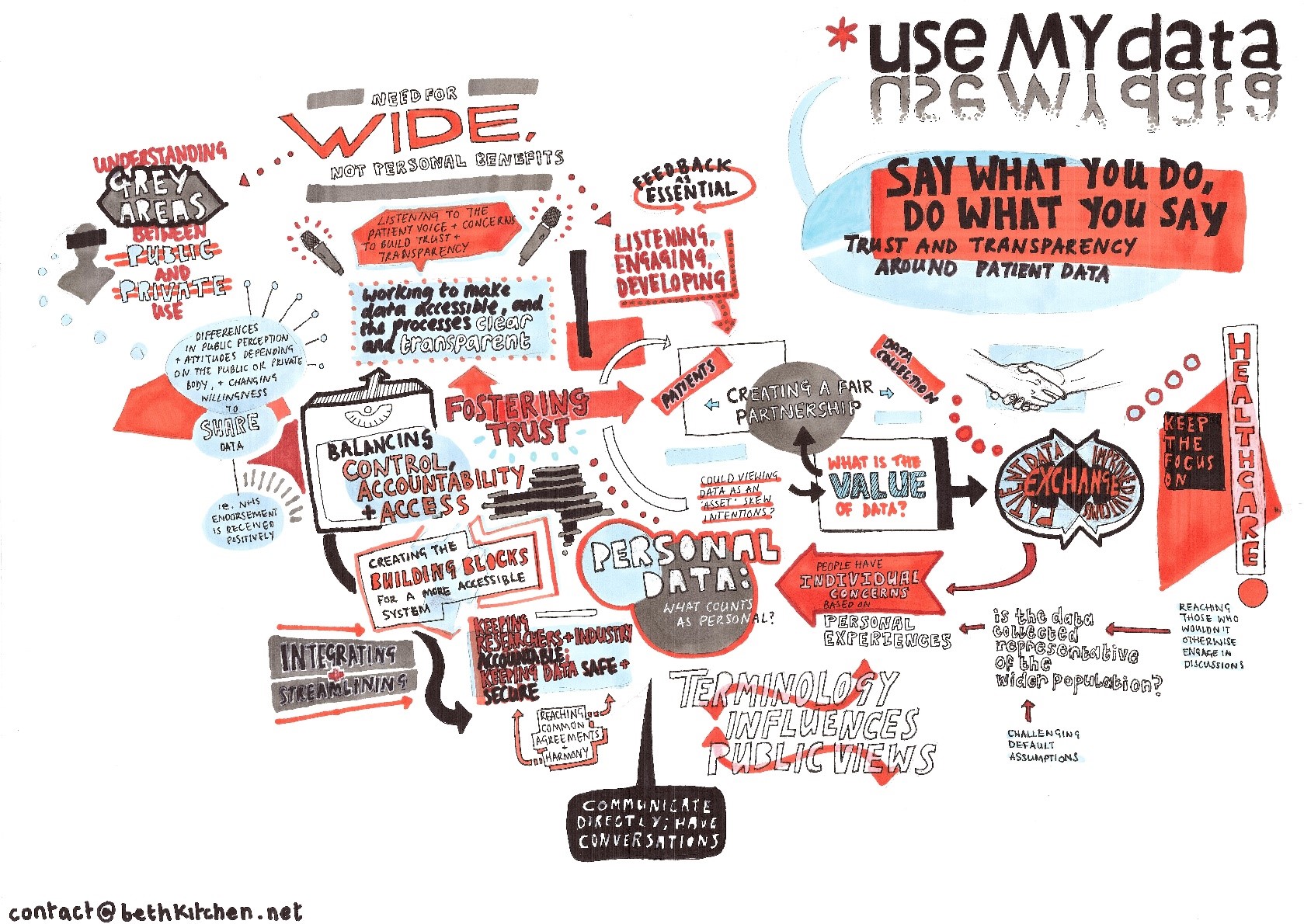
Say what you do, do what you say - trust and transparency around patient data
This workshop followed our May 2019 workshop "Patient data - balancing access and protection; All talk and no access?" which highlighted the number of organisations who already play a part in the management, access and release of our patient data. The organisations gave specific commitments to improve access to patient data.
Since then we had the launch of the Health Data Research Hubs, charged with a priority to make patient data available for innovative commercial uses. The general focus on commercial use of patient data is increasing significantly. The Office for Life Sciences has ambitious plans to seek new insights about public views on what constitutes a “fair deal” for patients.
Our workshop examined what is happening in all these areas of data access, what do patients think is fair and how informed are the public? We asked how the different custodians of patient data fit together and work together. We also explored which bodies have patient/public representatives sitting on decision-making committees/boards, and examined how they fit together.
The summary report for the event is available here.
The speaker slides from the workshop are available below:
- Views on commercial access to data, Juliet Tizzard, Director of Policy, Health Research Authority
- Previous committments on data access, Richard Welpton, Health Foundation
- Improvements in data access, Garry Coleman, Associate Director, Data Access, NHS Digital
- Update from the Office for Data Release, Public Health England
- A robust health data research infrastructure, Caroline Cake, Chief Operating Officer & Deputy Director, Health Data Research UK
|
| 16 Oct 2019 |
Kings Fund Event |
Kings Fund Event, London
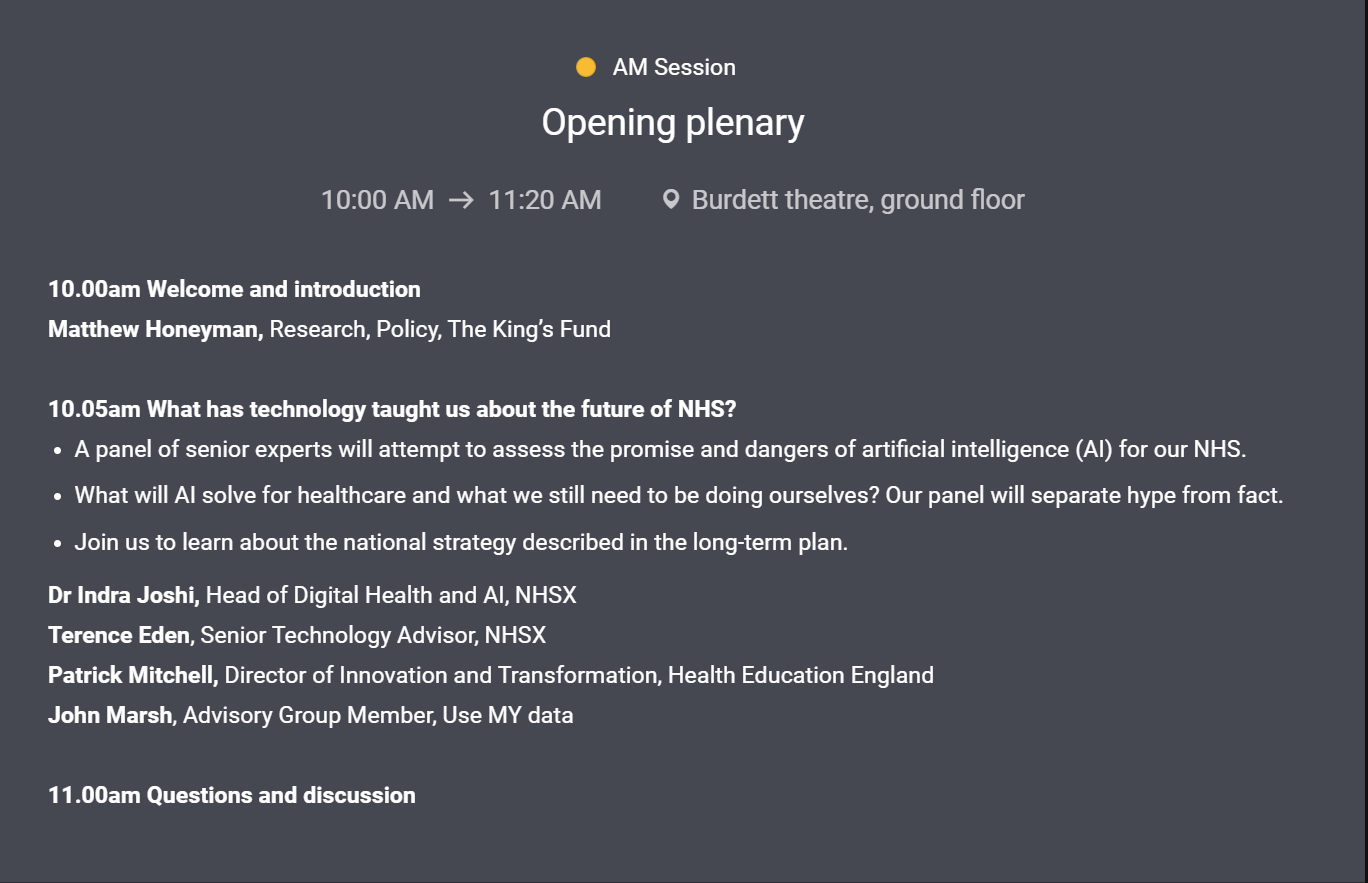
Emerging technologies: what does the future of health care look like?
use MY data was invited to be part of a panel of senior experts to assess the promise and dangers of emerging technologies.
The panel explored topical issues at the intersection of AI, data and health care, separating myth from reality and giving practical examples of how emerging technologies might be used.
The event was run by the Kings Fund and ran on 16 October in London.
use MY data was represented on the panel by John Marsh, Advisory Group member. The panel also included speakers from NHSX and Health Education England.
|
| 16 Oct 2019 |
ABPI Event |
ABPI Event, London
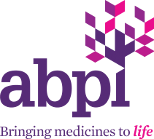
The ethics and regulation of innovation
The Research, Medical & Innovation and Legal teams at the ABPI ran an event for their regulatory/medical and legal colleagues across our membership.
use MY data was asked to take part in a panel session looking at the regulation of patient data.
The panel comprised:
- Professor Andrew Morris, Director, Health Data Research UK
- Julia Gillert, Senior Associate & Jaspreet Takhar, Senior Associate, Baker & McKenzie Services Limited
- Chris Carrigan, Expert Data Adviser, use MY data
- Will Navaie, Engagement Manager, Health Research Authority
|
| 2 Oct 2019 |
HETT Conference
|
HETT Conference, London
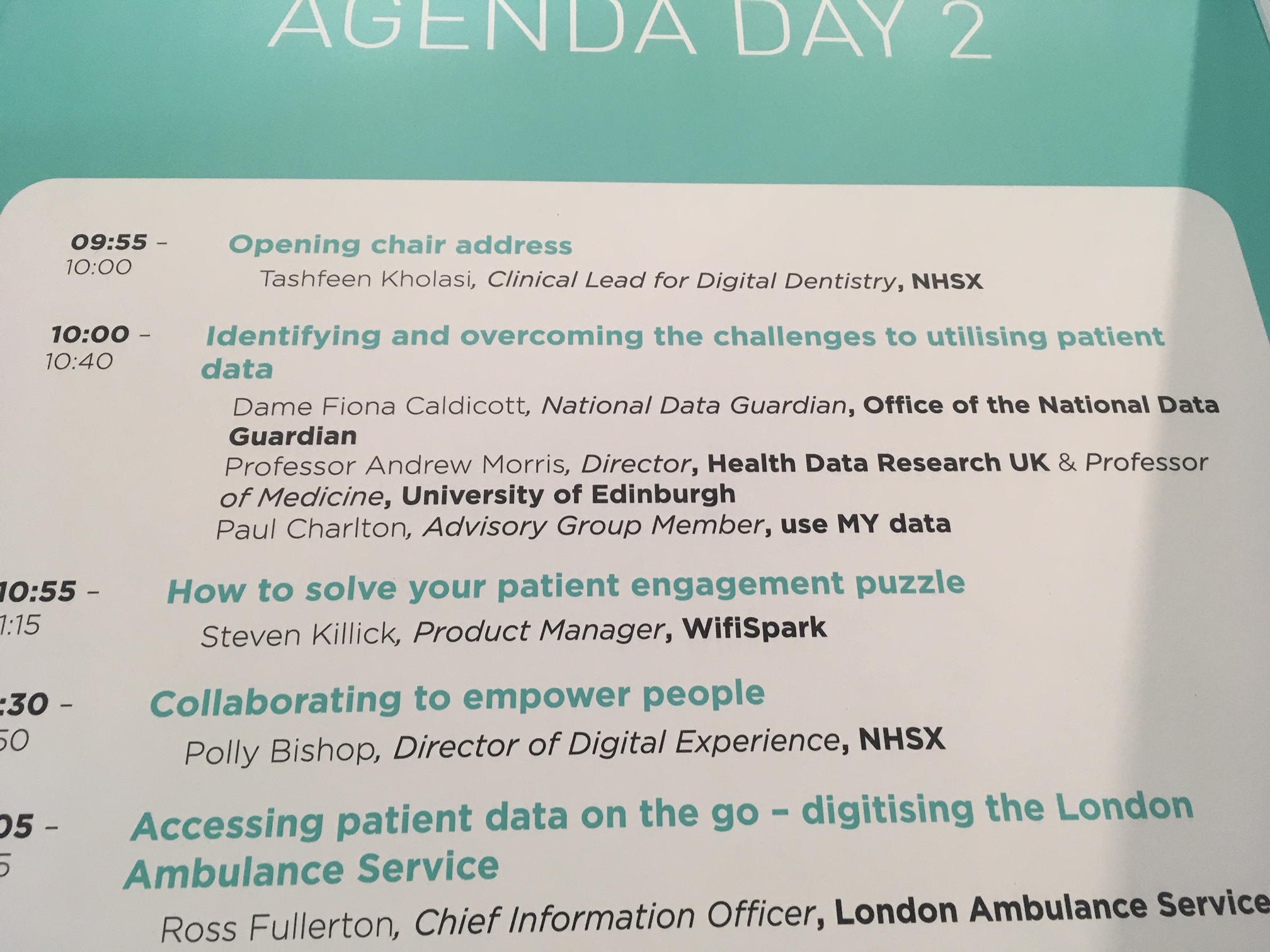
Harnessing the potential of patient-generated data to shape population health & genomics
use MY data was invited to take part in the panel session ‘Harnessing the potential of patient-generated data to shape population health & genomics’ at this event. The event was being run by Healthcare Excellence Through Technology (HETT) and ran on 01 & 02 October in London.
The panel comprised:
- Dame Fiona Caldicott, National Data Guardian, Office of the National Data Guardian
- Professor Andrew Morris, Director, Health Data Research UK
- Paul Charlton, Advisory Group member, use MY data
The content discussed was:
- Addressing consent and the proper use of data from an information governance perspective
- The role of the National Data Guardian in ensuring safe and accountable data usage
- Exploring the opportunities for the ethical use of patient data in clinical research
- Does a minority of the public have an undue influence on the sharing of data?
The workshop took place on Wednesday, 2 October.
|
| 11 Sept 2019 |
Tissue Workshop
|
use MY data workshop, London

use MY data campaign - The Issue with Tissue
use MY data is coordinating a campaign to increase the use of tissue samples held in UK biobanks. As a key part of the preparations for this we organised a small stakeholder workshop, in partnership with the Medicines Discovery Catapult, and facilitated by Incisive Health. We received a grant from Roche to support the costs of the work.
The workshop took place on Wednesday, 11 September.
Some details about the campaign and workshop:
- When a person makes a donation of a tissue sample, they expect it to be used to help accelerate the discovery and development of better diagnostics and treatments, so that future patients will experience better outcomes.
- Feedback from researchers suggests that too often there are unnecessary barriers to the use of tissue, resulting in missed opportunities for research and frustrating donors’ wishes.
- This issue was first raised at our workshop in 2018, Your data, your control and, since then, we have been discussing with key partners how we might address it.
- The workshop was to discuss the key steps that should be taken to improve and accelerate the use of human tissue samples in research, unblocking barriers and ensuring that the wishes of patients are respected. We hope to identify a series of recommendations, which can then be used to develop a ‘manifesto’ to support engagement with key decision-makers, ensuring that discussion is translated into action.
Workshop attendees comprised representatives from use MY data, Medicines Discovery Catapult, UK biobanks, the Medical Research Council, the Human Tissue Authority, the Health Research Authority, charities and academia.
We will publish a report which will be both a summary of the day and a call to action.
|
| 4 Sept 2019 |
RSS Annual Conference
|
Royal Statistical Society – Annual Conference, Belfast

use MY data participation
The Data Ethics Special Interest Group of the Royal Statistical Society (RSS) invited us to take part in a session Bridging public understanding of health and data sharing at the annual RSS conference.
“Until recently professionals and organisations have taken responsibility for regulating ethical health research, protecting patients by requiring informed consent. But in the case of big data, individual project-specific informed consent from each patient for each research project is infeasible. This session will hear from three projects which have been engaging with patients to find out what their views are: their understanding of the nature of use and their enthusiasm for research and discrimination between potential outcomes. Animation, video and interactive content from engaging patients will be showcased.”
use MY data member Debbie Keatley took part in the session, focussing on The patient imperative to use MY data.
|
| 16 May 2019 |
St Giles in the Field, London
|
The European Health Innovation Collaborative
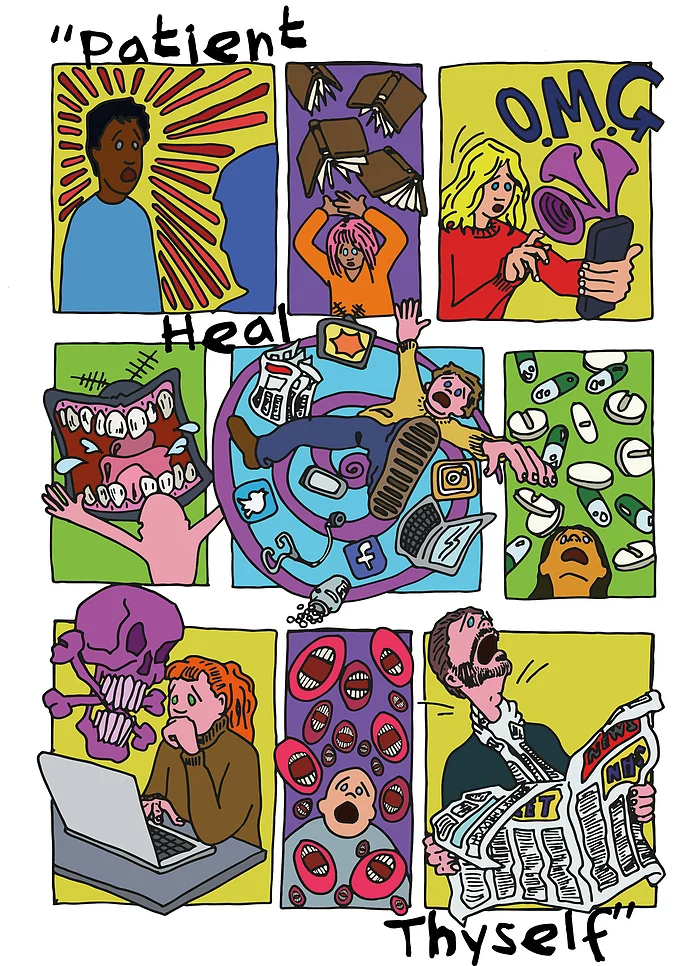
Saving lives & improving treatment - why sharing patient data is good
use MY data took part in this event, which was organised by St Giles Medical. This was the second of these
patient-orientated conferences, which this year took place in London on Thursday 16th May 2019.
Our session focused on why sharing patient data is good and included speakers from use MY data.
Details of the event can be found here.
|
| 7 May 2019 |
London
|
use MY data workshop
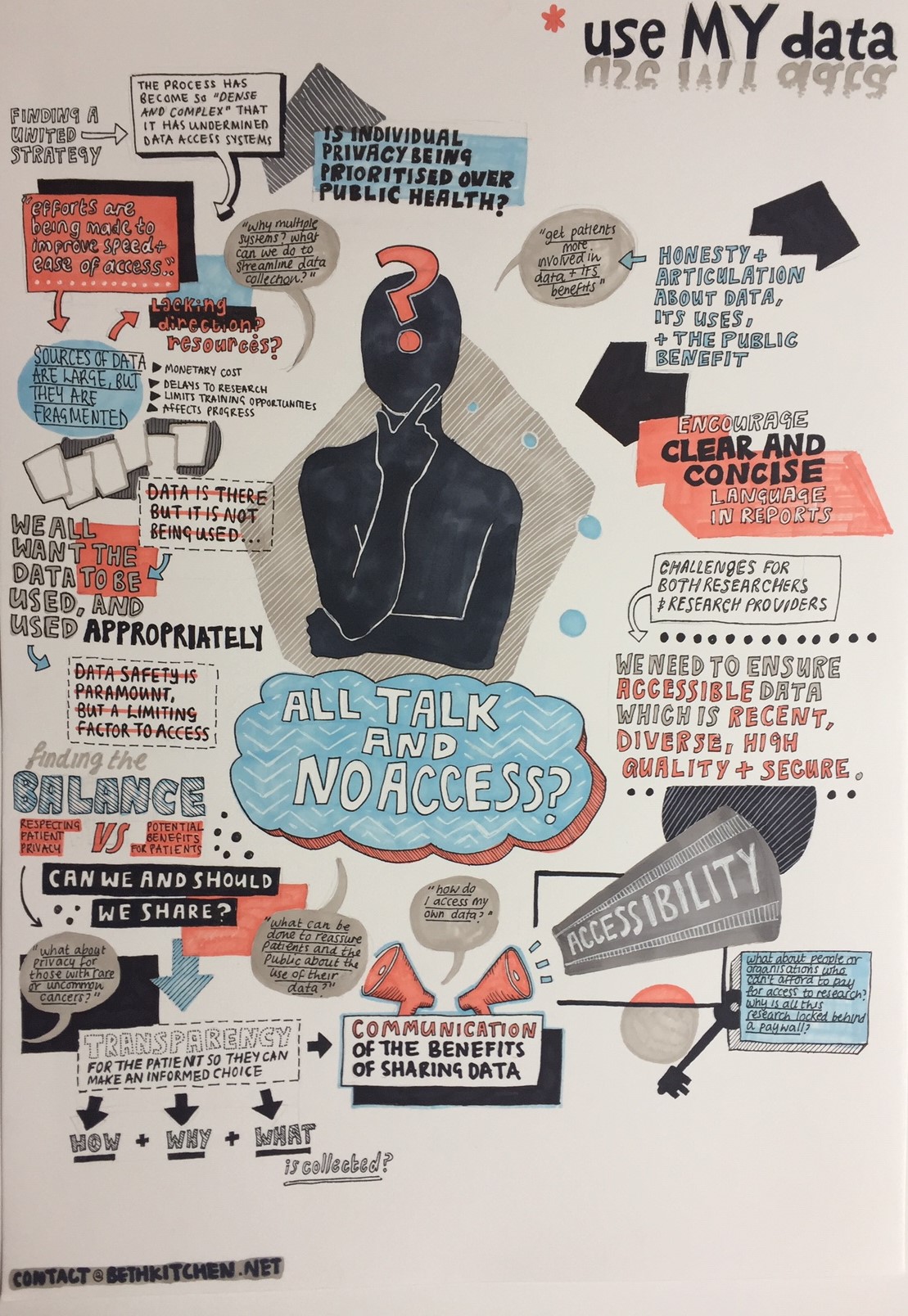
Patient data - balancing access and protection; All talk and no access?
Patient data saves lives and improves outcomes and yet researchers are struggling to access patient data. This workshop brought together data access bodies - the controllers/guardians of patient data - for a collective discussion.
The aim of the workshop was for the patient voice to help the organisations find solutions.
The agenda for the event can be found here
and the summary is
available here.
A morning panel presented on the topics of: What data is held about patients? What are the roles, controls and processes for access to this data?
- An introduction to the problem - Richard Welpton, The Health Foundation
- Data Access Request Service (DARS) - Garry Coleman, NHS Digital
- Independent Group Advising on the Release of Data (IGARD) - Kirsty Irvine
- Office for Data Release (Public Health England) - Tariq Malik
- Use of data in research (Health Research Authority) - Janet Messer
My take-away from the day was "how can I communicate clearly why you should trust me to always act in your best interest with your health/data?"
Chief Technology Officer, commercial company
All of the questions I had were answered, plus questions I had not even thought of
Delegate
An afternoon panel contrasted research data access in the different parts of the UK, including opportunities to learn. Given what has been heard so far, how are the new developments and partnerships in health research going to make a difference? What actions from this workshop do they need to take forward?
- The current UK landscape (Medical Research Council) - Alex Bailey
- Uniting the UK's health data to make discoveries that improve people's lives (Health Data Research UK) - Amanda White
|
| 28 March 2019 |
London
|
Public event on free-text medical data
Sharing your healthcare data safely – public views on using patients’ medical reports, letters and doctors’ notes for research?
To improve current research using free-text data, we need to find a way to make them more accessible and, simultaneously, to do this in a safe, secure way. Several use MY data members took part in this event which sought to engage all stakeholders to check that safeguards and governance frameworks are trustworthy and meet all the expectations of the public.
use MY data representatives were in the audience, at workshops and on the main discussion panel.
Details of the event can be found here.
|
| 13 March 2019 |
London
|
Staff Training Event - National Cancer Registration and Analysis Service (NCRAS)
A patient perspective on data collection and usage
A member of use MY data presented at the annual training event for NCRAS staff. The presentation was from a personal perspective, highlighting a personal "data journey", including feedback on what the member found when he examined his own data record.
|
| 28 Feb 2019 |
Leeds
|
King's Fund Event

Health and care explained: how the system works and how it is changing
use MY data were taking part in a session within an all-day King’s Fund event – Health and care explained: how the system works and how it is changing.
The event examined how data is used in the NHS (for evaluation, research, improvement, direct care etc.) and how that is changing, along with a brief background on Information Governance, GDPR and the National Data Opt-out.
A use MY data representative talked about use MY data and what we do, giving their views on some of the points above.
The link to the event website is available here
|
| 4 Dec 2018 |
Central London
|
All Party Parliamentary Group on Cancer
Britain Against Cancer 2018
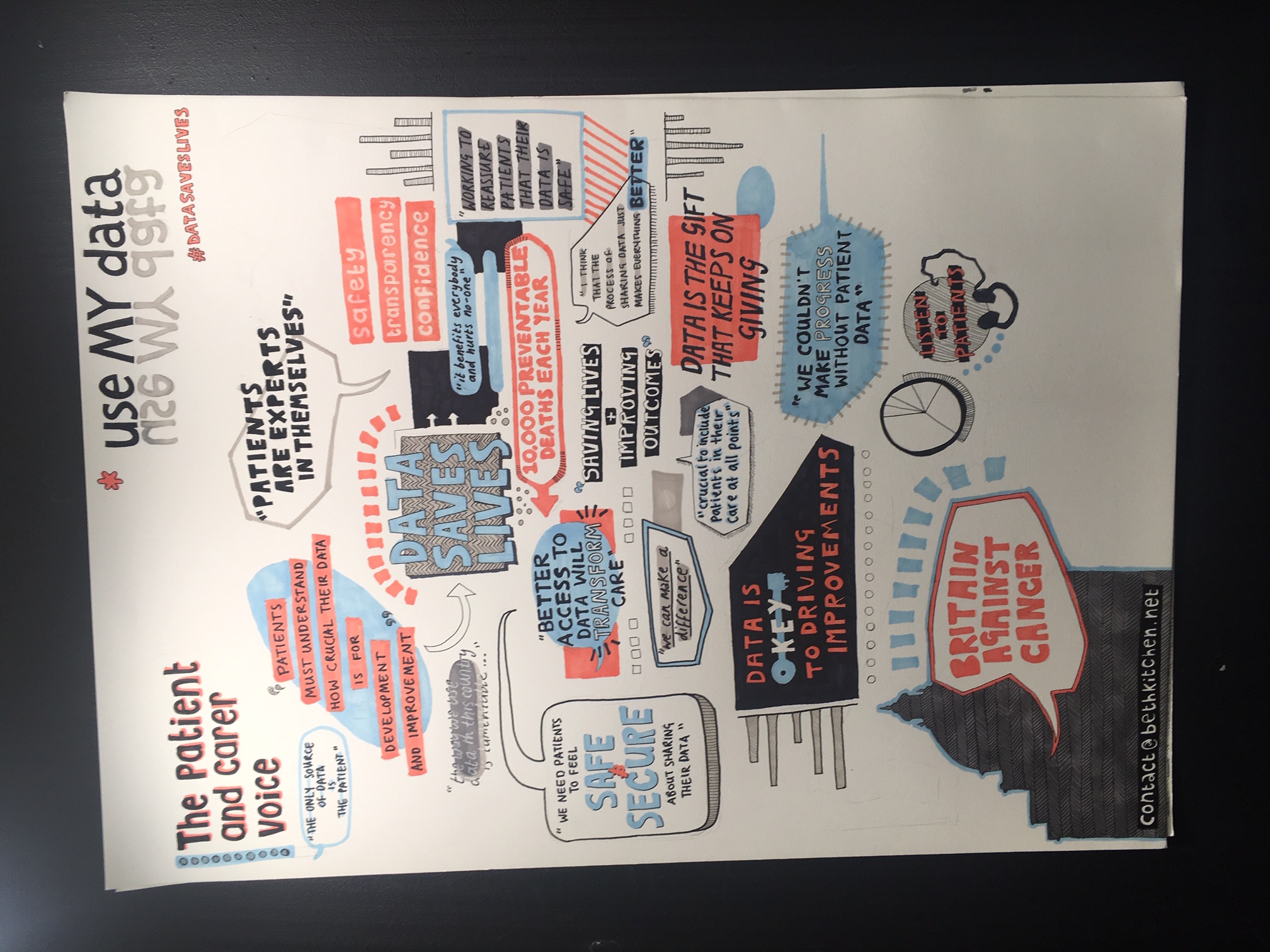
use MY data had a joint exhibition stand with Cancer52. Our focus for the day was on "The patient and carer voice", continuing the work of use MY data and Cancer52 in ensuring the voice of people with rare and less common cancers is heard alongside those with the more common cancers.
We used the event to do some short filming of patient views, in partnership with Cancer52. The films will be available shortly.
Fo information, the link to the conference website is available here
|
| 22 Nov 2018 |
Queens Hotel, Leeds |
use MY data Workshop
The patient voice in the expanding data world
The workshop examined the latest patient data initiatives and how (or whether) the patient voice is being incorporated into these.
The programme featured:
- Do we need opt-outs, active data donation or just a new NHS social contract?
- The Local Health and Care Record Exemplars (LHCRE) programme
- Auditing your own health record - how, what, why?
- GDPR, Common Law, Consent. Where are researchers struggling and
how could the patient voice help?
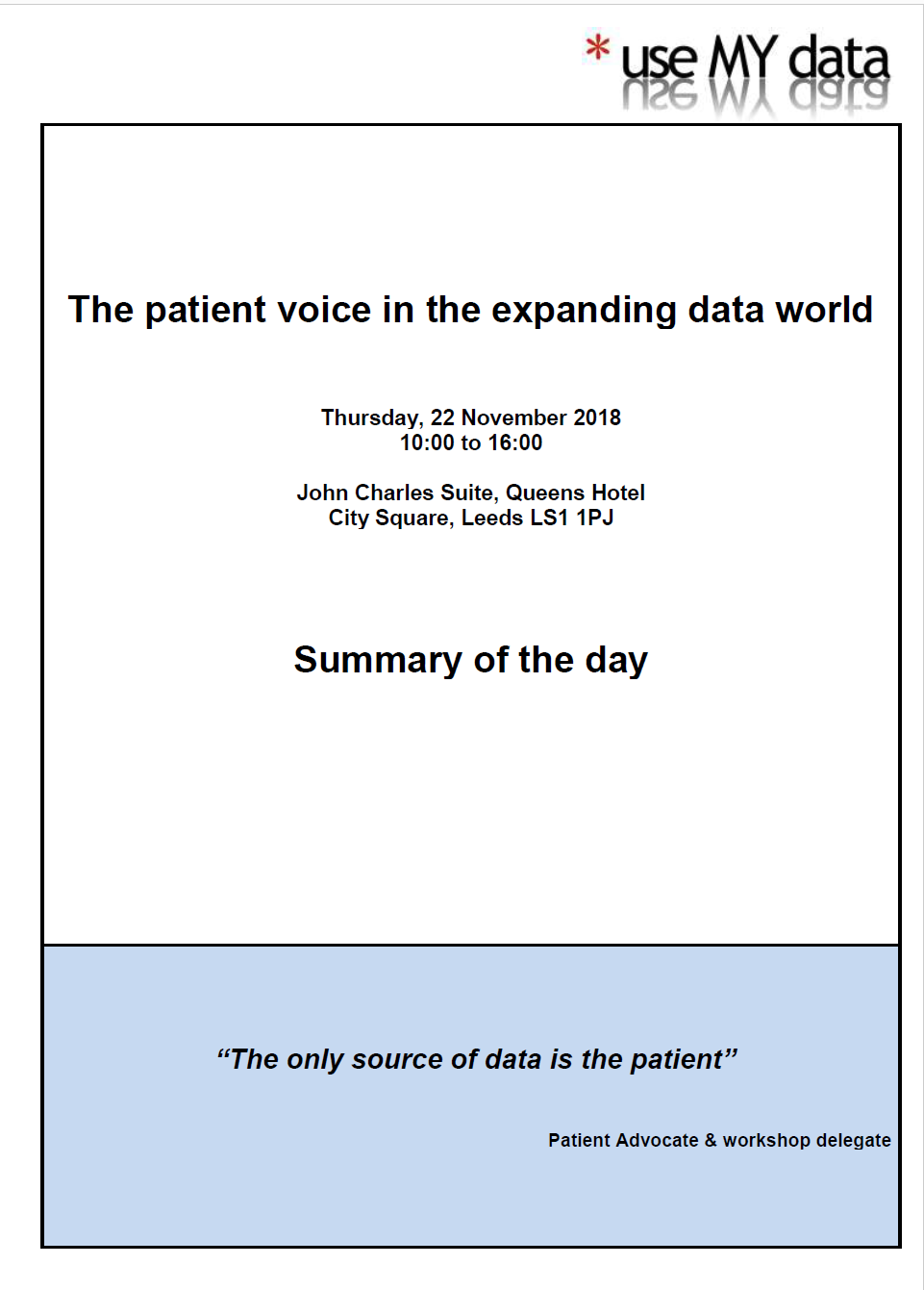
Delegates heard the latest thinking from experts on different aspects of the uses of patient data. They also heard about some of the challenges and were asked for their thoughts and suggestions throughout the day. The workshop was interactive and discussive and was an opportunity for delegates to feed their views directly into several developing areas.
The workshop was aimed at patients, relatives and carers, the public and professionals. It was open to all who are interested and was free to attend. Expenses were covered for delegates who are patients, relatives and carers.
The workshop agenda is available here.
A summary report of the workshop agenda is available here.
The workshop presentations are available below. Not all presentations are available
|
| 20-21 June 2018 |
Manchester
|
PHE Cancer Data and Outcomes Conference 2018
use MY data members attended, sharing a stand in the exhibition hall with Cancer52.
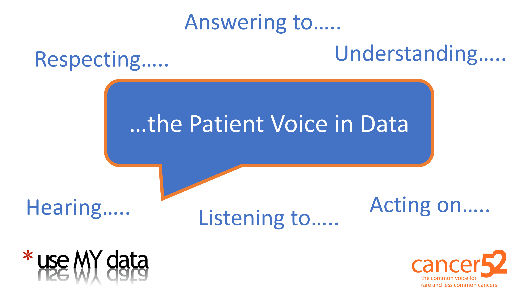 Our joint focus for the event was "the patient voice in data", showing how use MY data and Cancer52 are working together to help ensure the voice of people with rare and less common cancers is heard.
Our joint focus for the event was "the patient voice in data", showing how use MY data and Cancer52 are working together to help ensure the voice of people with rare and less common cancers is heard.
We also used the stand to promote the data animations produced by Understanding Patient Data, which use MY data were part of developing.
We had details on the stand of the launch of a new national award, led by patients/carers, to showcase examples of excellence where data from the National Cancer Patient Experience Survey has been used to drive improvements in patient experience.
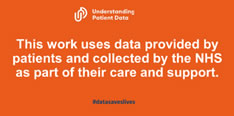 We encouraged the continued use of the use MY data "data citation", which has been adopted by Understanding Patient Data and which organisations are being encouraged to use.
We encouraged the continued use of the use MY data "data citation", which has been adopted by Understanding Patient Data and which organisations are being encouraged to use.
During the course of the conference we used a graphic artist to produce two illustrations, one per day, on the separate themes of "the patient pathway" and "rare and less common cancers". These illustrations are available for members to use freely.
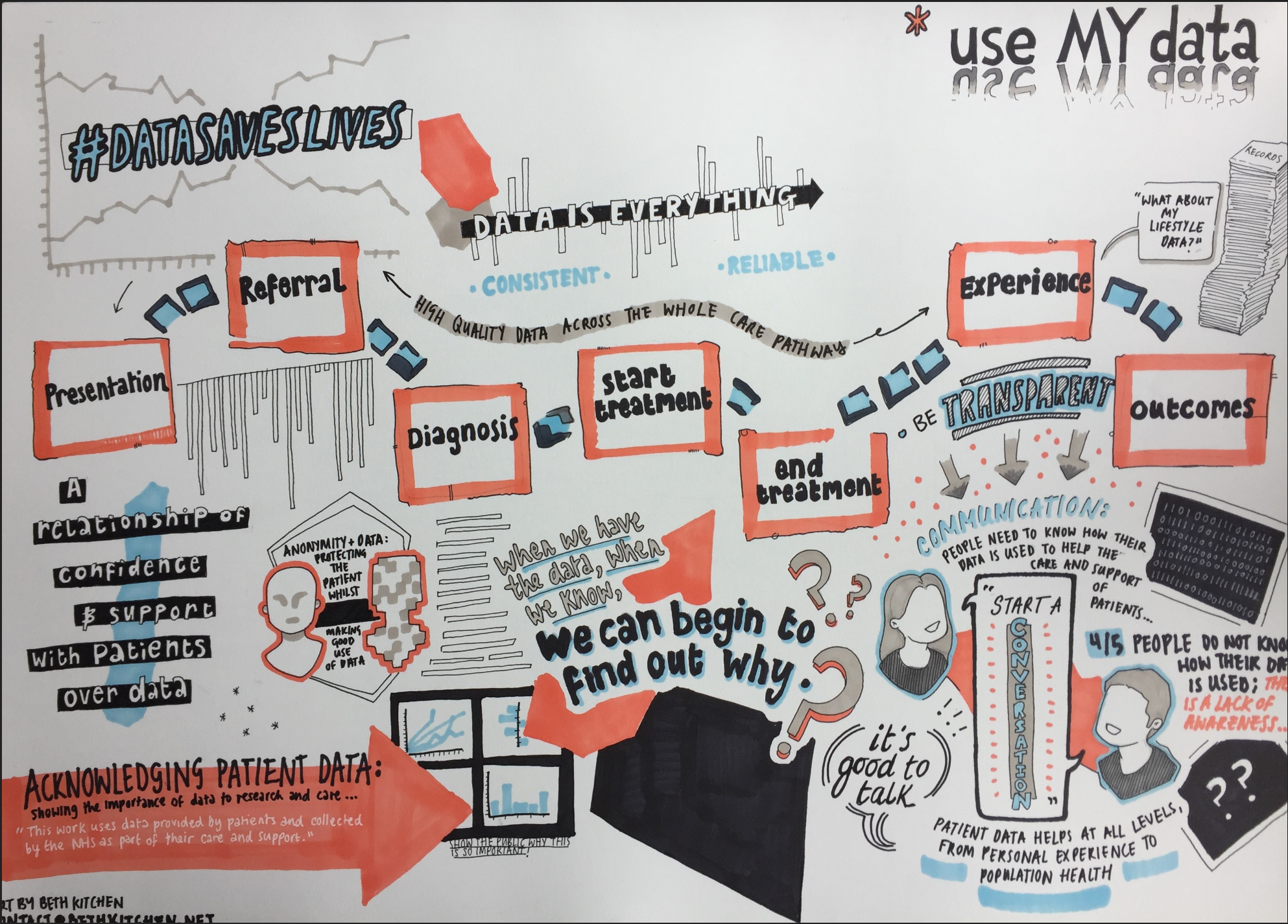
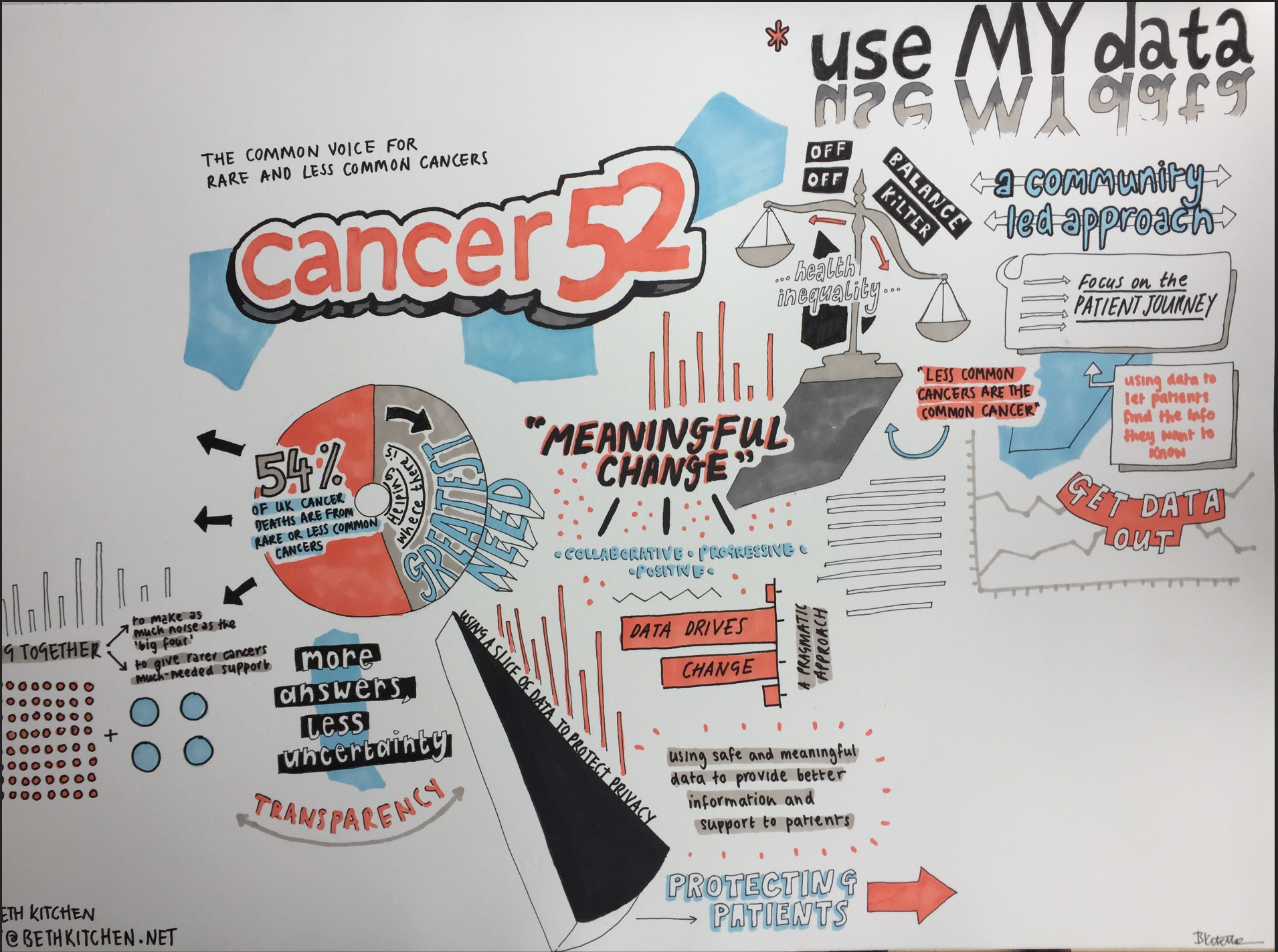
The conference link is
available here
|
| 2 May 2018 |
The Kings Fund, London |
use MY data Workshop
Your data, your control
The workshop agenda is available here.
The workshop flyer is available here.
The workshop, for patients and the public, examined and discussed a range of activities around patient data, including:
- Session 1: Patient data and information - what we know
- Session 2: Primary care preparations for the National Data Opt-out – The Royal College of General Practitioners
- Session 3: Machine-learning and patient inclusion – Microsoft Research
- Session 3: SHERLOC – Microsoft Research
- Session 4: Use my data, use my DNA– Medicines Discovery Catapult
Delegates heard from experts on how patient data is being used, how patients are being involved, what safeguards are in place and, how patients can play a stronger part.
A summary of the workshop is available here.
|
26 April 2018 |
Central London
|
ABPI Annual Conference
Keynote speech and panel session
use MY data were invited to give a keynote speech at the Annual Conference of the Association of the British Pharmaceutical Industry, followed by use MY data taking part in a panel session.
Details of the programme are available here.
|
| 14 March 2018 |
Public Health England
|
ODR Seminar
About use MY data
use MY data were invited to speak to staff by Public Health England's Office for Data Release (ODR)
|
| 5 Dec 2017 |
Britain Against Cancer - London
|
use MY data session
Primary Care’s pivotal role regarding patients and their data
GPs receive no formal training about data & yet statistics show that GPs are the first point of contact for patients seeking advice about whether to opt in or out of their data being used.
With clinical time constraints, is it actually possible to explain to a patient all of the potential rewards and risks of their data being used? If it is not possible to explain, how can a patient make a truly informed choice?
The Government’s response to the National Data Guardian’s recommendations about the new National Consent Model state “we will support professionals to implement the national opt-out successfully”.
Given that the GP practice is one of the main places for patients to have conversations about their health and about the uses of their data, this session will discuss issues such as the lack of training and materials for GP staff and the risk to the continued use of data for analysis and research.
In this session we heard about what is being done to help GP staff in this area, examined what more needs to be done and how best this might be achieved. Attendees discussed the current status of the proposed National Consent Model and how patients can work with GPs to better understand the rewards and risks of data sharing.
The session summary is available here.
|
| 12 October 2017 |
Patient workshop - London
|
Commercial uses of patient data
The use MY data workshop, Commercial uses of patient data, took take place on Thursday, 12 October at the offices of Quntiles IMS in London.
Programme
The workshop programme is available here.
The workshop summary is available here.
During the workshop we examined, via a mixture of talks and discussion, the ways in which commercial use is made of patient data.
Topics included:
- which commercial companies can obtain your data?
- what are the controls around commercial access to patient data?
- what levels of data can commercial companies see?
- what do commercial companies do with patient data?
- how do commercial companies benefit from patient data?
- how does the NHS benefit from commercial use of patient data?
The presentations are available below:
Why do commercial companies need health data
How are patient data used to provide the insights and evidence that the NHS needs to deliver and evaluate services to provide better outcomes for patients?
How does a commercial company support the NHS and pharmaceutical industry in conducting clinical trials and real world evidence studies in disease areas?
How does the pharmaceutical industry use patient data (part 1)? [slides were only approved for single use presentation and not distribution]
How does the pharmaceutical industry use patient data (part 2)?
What steps does a company need to go through to be able to access patient data? [awaiting slides]
Openness and transparency - could it be improved? What do patients want?
|
| 13, 14 June 2017 |
PHE Cancer Data and Outcomes Conference - Manchester
|
use MY data at the PHE Cancer Data and Outcomes Conference
The conference provided a national focus for access to patient data. It explored how data is being used across the patient pathway, from prevention, early diagnosis and treatment through to patient experience, quality of life and patient outcomes.
use MY data took part in two sessions:
Tuesday, 13 June, 1625 to 1730
Working with data workshop 2: Driving the data decisions: How patients and the public can set the direction
Delegates :
- heard recent examples of data activity where patients and the public have been equal partners or in the driving seat
- discussed and suggested other ways patients and the public can be involved
- learnt about new opportunities to work with a range of organisations
Wednesday, 14 June, 1345 to 1500
Data - How can patients make an informed choice if we can't inform them?
We now have between 1 and 2 million people who have "opted out"of having their data shared outside of their direct care. They made a choice. But with so much emphasis on choice being "informed", exactly how well informed were patients when they made that choice?
A workshop took place in January 2017, organised by use MY data, to bring together a panel of GPs with cancer patients, some of whom had opted out of care.data, and some who had not.
The questions posed were:
1) When care.data "hit", what did the GP community have available by way of briefing, and what did they know (or find out) about patient data, so that they could advise any patient who asked?
2) if a patient were to ask the same question (about data usage) tomorrow, is the GP community any better equipped to answer the question, so that patients can make a fully informed choice.
Not unexpectedly, the GP community felt ill-equipped to cope with the questions asked of them by patients about data usage when care.data was announced. However, there seems to have been little or no improvements in equipping the GP community with additional information, balanced assessments of risks and benefits, and other facts to allow them to advise any of their patients about data usage.
Any choice is complex. Given the clinical time constraints, is it actually possible to explain to someone all the secondary uses of their data, the potential risks and the major benefits that can be accrued for such data usage? And if it is not possible to explain, how can any patient make a truly informed choice?
The findings from the workshop, together with follow up actions and feedback from primary care and patients, and recommendations, were presented and discussed with the audience.
https://www.phe-events.org.uk/hpa/frontend/reg/absViewDocumentFE.csp?documentID=11399 |
| 9 May 2017 |
Patient workshop - London
|
Patient data and tissue samples - benefits, barriers and concerns
This workshop, jointly organised by UKCRC, ICPV, CM-Path and use MY data, examined and discussed:
- Tissue samples and the data pathway
- Current governance and what it could/should be
- Consent including dynamic consent versus broad consent
- How the use of data might influence the decision to donate
Delegates heard from pathologists, patients, researchers and governing bodies. Via a mixture of talks, questions & answers and debate, we examined the benefits of and barriers to donating tissue.
The workshop was aimed at patients, the public, researchers, biobankers and charities, but was open to all who are interested.
The flyer is available here.
The summary from the workshop will be available shortly.
The slides are available below:
My pathway through research, tissue and data donation
The pathologist in the sample to data pathway
Epigenetics in Breast & Ovarian Cancer
Using and disclosing confidential patient information and the English common law: what are the information requirements of a valid consent?
Public dialogue on consent for tissue and linked patient data
Consent and the Human Tissue Authority
|
| 26 Jan 2017 |
use MY data workshop - London
|
The patient voice - who is listening?
This workshop examined the role of the patient voice in relation to patient data, examining how influential the
patient voice could and should be.
- Can patients control how their data are used?
This session examined existing initiatives where patients lead on the use of their data and the impact of this. It
looked at potential initiatives where patients want to lead on the use of their data and the potential impact
for research and outcomes.
- The media & patient data: is the patient voice heard?
Via an expert panel this session presented balanced perspectives about the role of the patient voice in the media.
We examined how influential the patient voice could be, why it is not heard at the moment and how a more
balanced media view of the uses of patient data could be achieved.
- Primary care & data collection: the impact on the GP & the patient
After an overview highlighting the current issues affecting primary care and data collection, we heard from GPs
about how this currently feels in primary care and the ways in which conversations with patients are approached,
or why they are not approached. In turn we aimed to provide a balanced patient perspective & voice to aid GPs.
The agenda is available here.
The workshop summary is available here.
Why seeing my cancer registration record is important, what I found & why this could be important to others
Other options for linkable lifestyle data – what about your supermarket loyalty card? What sort of insights could be gained & who would benefit most?
My data in the Health Bank initiative – why it’s there and how does the health bank want to use it
|
| 6 Dec 2016 |
Britain Against Cancer - London
|
use MY data/ICPV workshop
Patient data – why & how it should be used more effectively - a call to action
This session will set out a proposal for how the patient community can drive the data agenda, so that patient data is collected and used in the most effective way.
The session will examine how easy this could be if current & proposed barriers were removed, alongside looking at the safeguards that would need to be in place. It will do this by examining patient led initiatives and using examples from the devolved nations.
The session will clearly demonstrate why politicians, the NHS and the public should be accountable to patients and listen to the patient voice.
use MY data / ICPV workshop details available here.
Workshop flyer available here.
|
| 20 Sept 2016 |
Patient data workshop - London
|
Who uses your data?
To explore who uses patient data, why they use it and the benefits and risks of its use.
To present the balanced argument for using data, hearing from data privacy campaigners and patients who want their data to be used.
Speakers included prominent data privacy campaigners, discussions around the insurance industry and representatives from the pharmaceutical industries.
Agenda available here
Review of Informed Consent for Cancer Registration, CRUK & Macmillan
Independent Patient Data Taskforce, Wellcome Trust
Update on the National Data Guardian’s Review and consultation, including
the views of patient advocates / questions and answers
Consensual, Safe and Transparent? How privacy protections encourage data use (no slides used)
Public attitudes to commercial access to data
Patient data and the pharmaceutical industry
How can/should the media present a balanced view of patient data?
|
| 13, 14 June 2016 |
Cancer Data and Outcomes Conference, Manchester
|
To provide a national focus for access to patient data, with media engagement.
To hear about the rewards of data use. Organised by the PHE National Cancer Registration and Analysis Service, and in collaboration with the UK & Ireland Association of Cancer Registries.
This conference is renowned for its high inclusivity of active patient voices. Patient bursary places are available, and the use MY data team will be at the event and taking part in plenary and parallel sessions.
In previous years you may have known this as the NCIN Annual Cancer Conference. To examine areas where new academic insight needs to be developed, utilising ‘big data’ techniques
Presentations are now available here
|
| 21 April 2016
|
National Consent Model workshop, London
|
To provide background information, updates and balanced perspectives on the National Consent Model and its implications for data collection and research.
To aid patients and charities in responding to the consultation
Workshop Summary Report available here
Agenda available here
Why the USE of cancer data is so important, and why the current model is so valuable
Cancer registration – how will it change if consent is needed?
Routes to Diagnosis reimagined [Slides withdrawn]
The devolved nations and England – contrasting approaches to patient consent
How patients are currently informed. Using patients’ experiences to define how new patients could/should be informed?
|
| 11 February 2016 |
Data workshop, London |
To follow up from the 29.09.15 data workshop, providing information on a range of data issues (requested after the workshop and via the use My data working group).
To aid those who wish to promote the use of their data for research
Download the agenda here
How patient data is used in London
Benefits for cancer patients - now and in the future
Consent, the law and Caldicott
The four devolved nations
EU directoves and the UK
Primary care data
Changing the public's perception of data access - Media engagement
|
| 8 December 2015 |
Championing a research focused NHS: How should we best use patient data? |
To explore the current landscape for the use of data in research in the NHS - and the rules in place around access.
To generate solutions for how cancer patients, charities and politicians can support the organisations entrusted with our medical records to strike the right balance between protecting confidentiality and enabling effective and timely research. |
| 3 November 2015 |
Involving patients in the use of their data.
Lunchtime session hosted by the NCIN & CRUK
NCRI Cancer Conference, Liverpool |
To bring together the patients whose data is held, with the researchers who need access to this data to drive improvements in diagnosis, treatment, care and outcomes.
To explain the difficulties in getting access to data for research, including what has stopped, and where we are now.
To explore ways in which the patient voice can to help unblock these difficulties.
To describe and help plan a wider programme of activities aimed at education for, involvement of and support from patients for the usage of their data to save and improve lives. |
| 29 Sept 2015 |
Data workshop, London |
To help increase the understanding of the collection, ownership and use of cancer patient data, as well as looking at data protection and data access.
To aid those who wish to, to promote the use of their data for research.
Download the agenda here
A brief history of cancer registration
Risks and rewards of data use
The Data Protection Act
Who can access your data and how?
|
| 29 July 2015 |
Donate Your Data Working Group meeting, London |
To discuss the aims and methods of Donate Your Data and develop a strategy, addressing patient involvement in data release, recruitment, communications and advocacy. |
| 8 June 2015 |
NCIN Dragons Den
Cancer Outcomes Conference, Belfast |
To launch Donate Your Data (the forerunner to use MY data).
To explain the concept, obtain the reactions and help of patients to develop the idea and sign up members. |
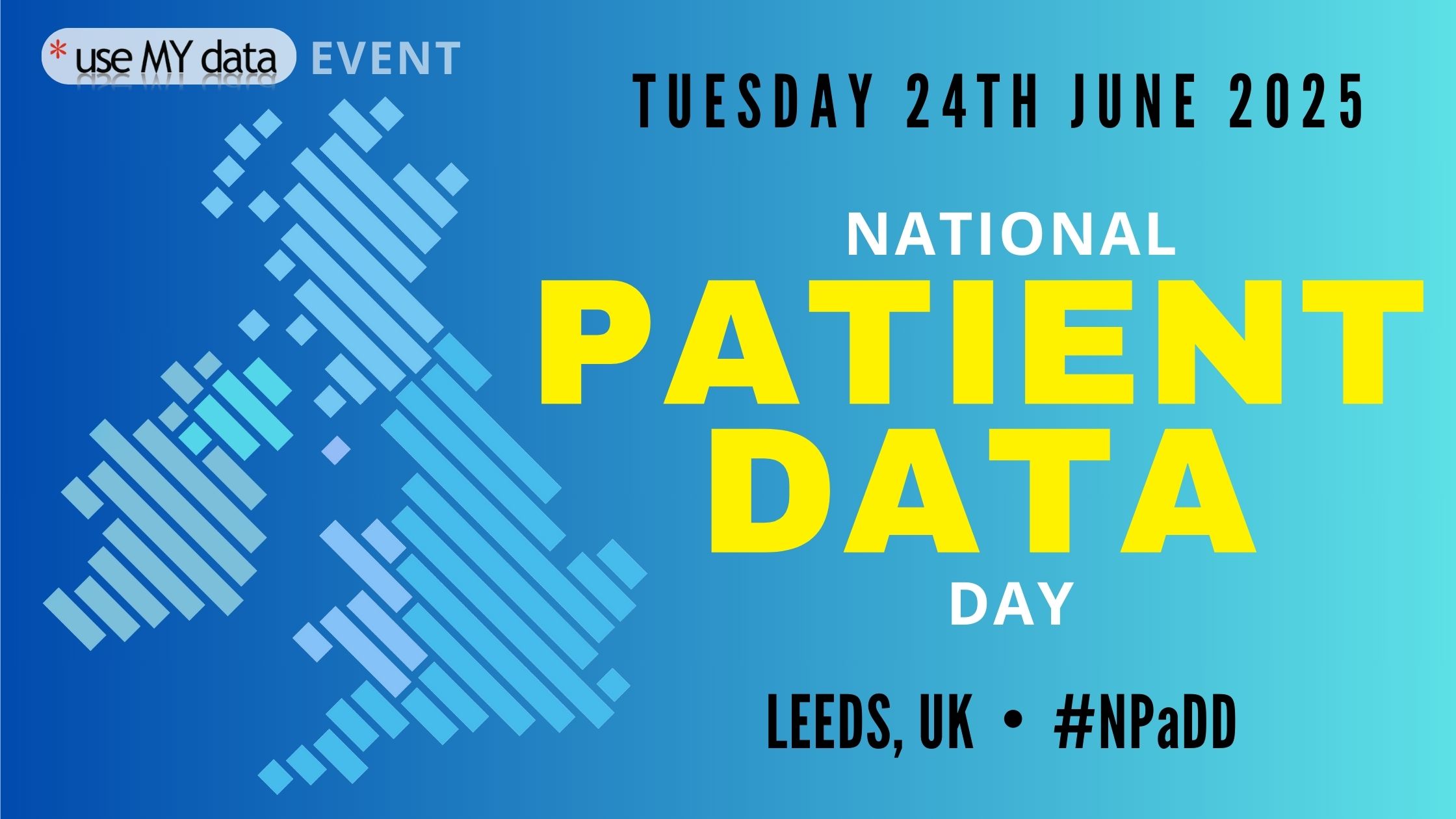
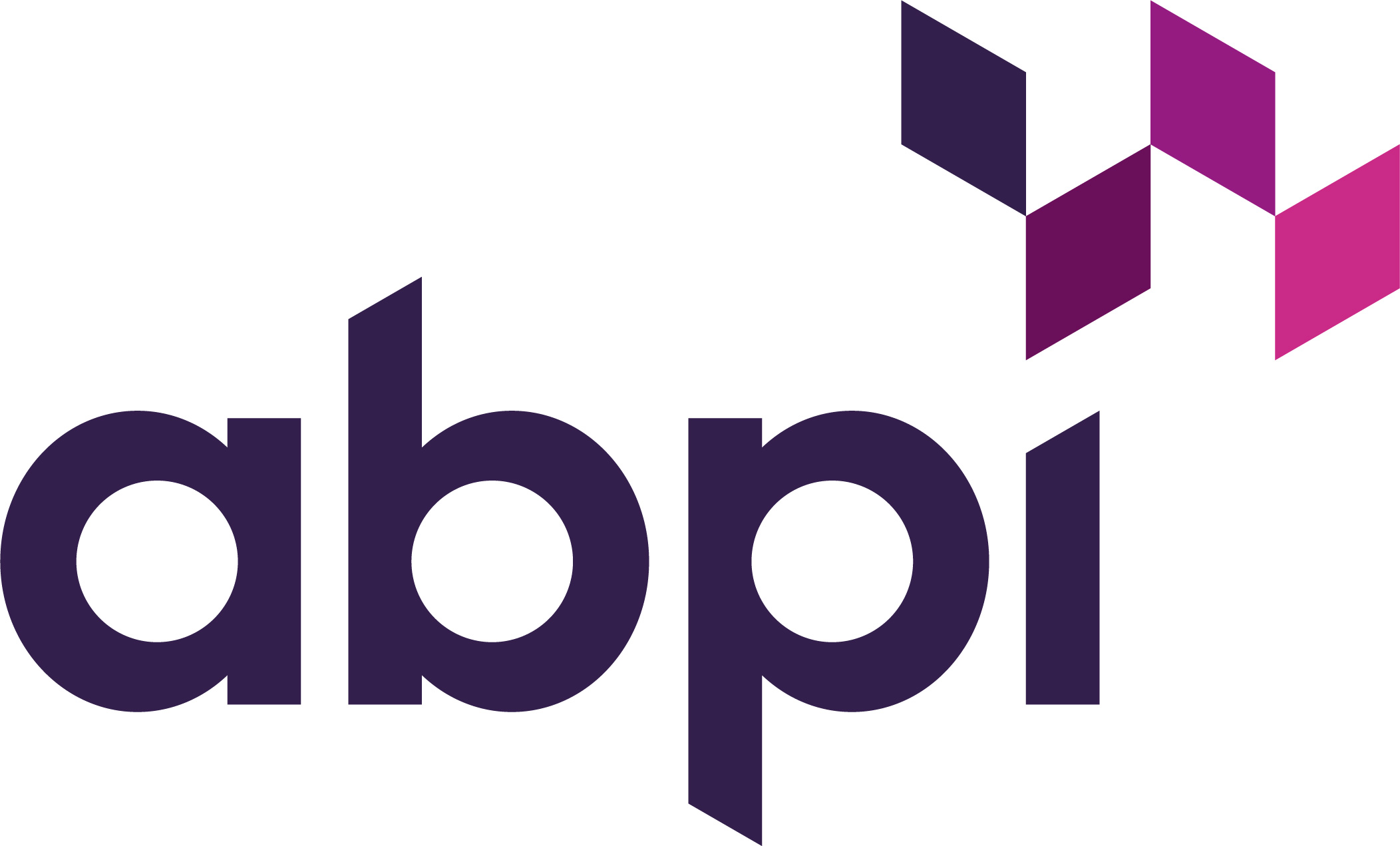



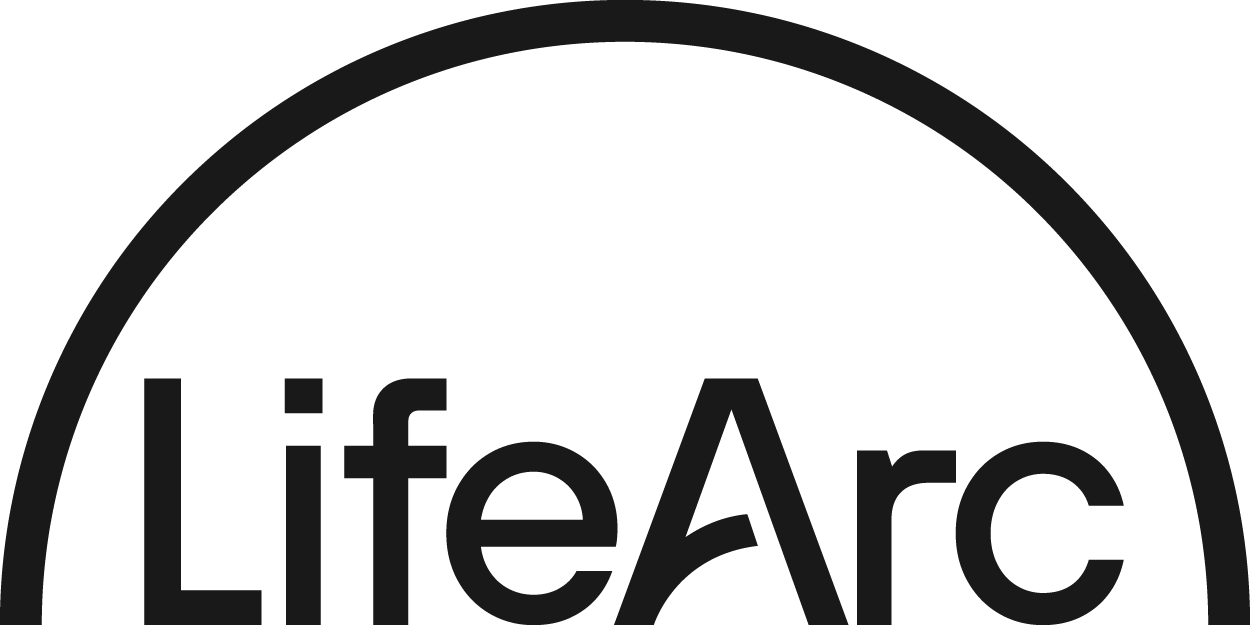


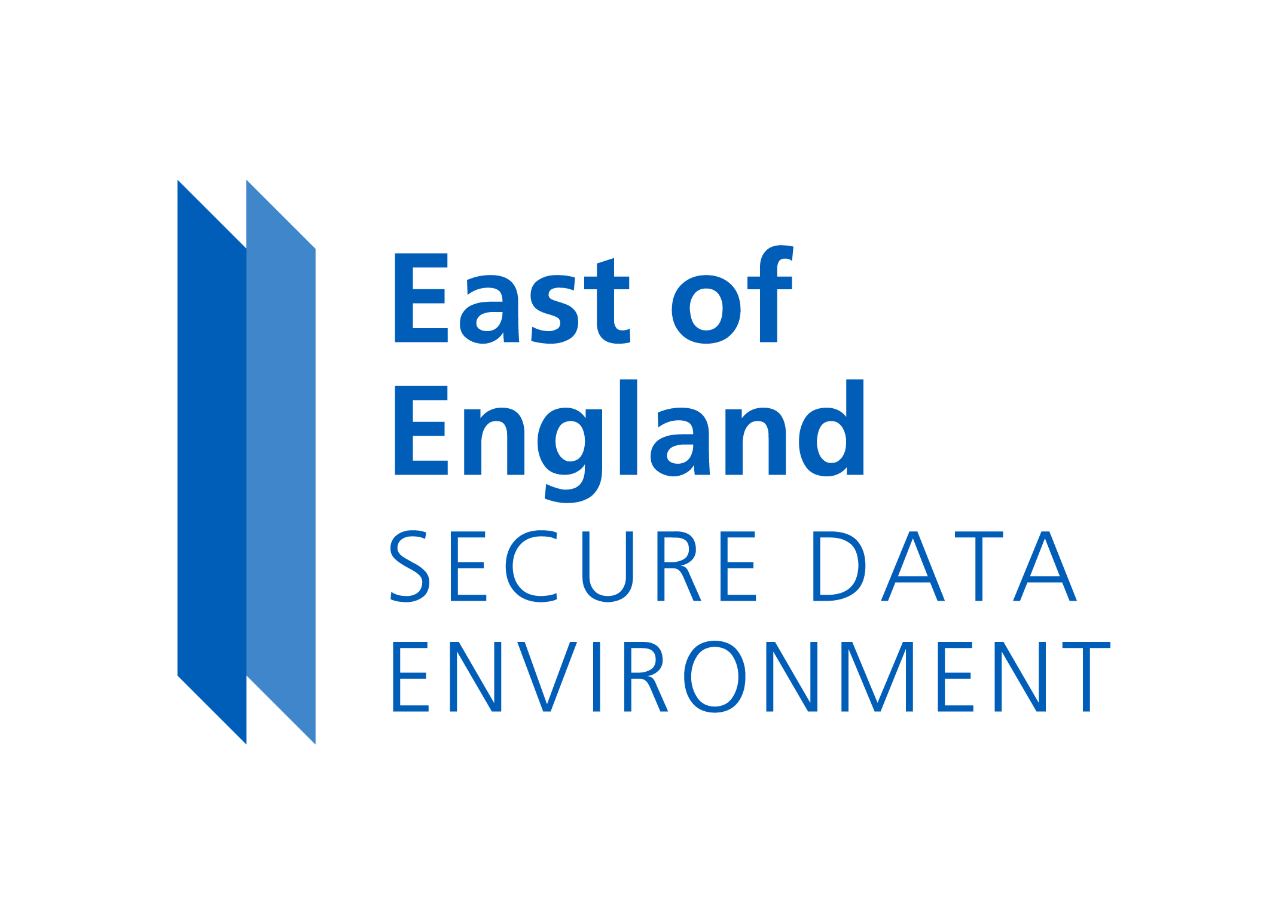
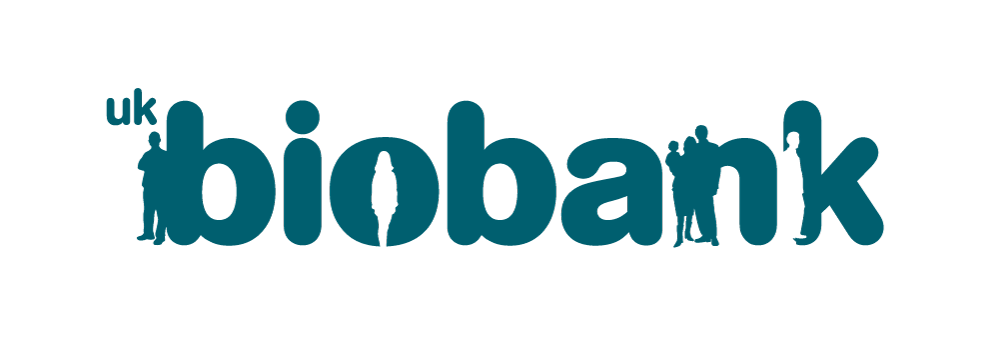

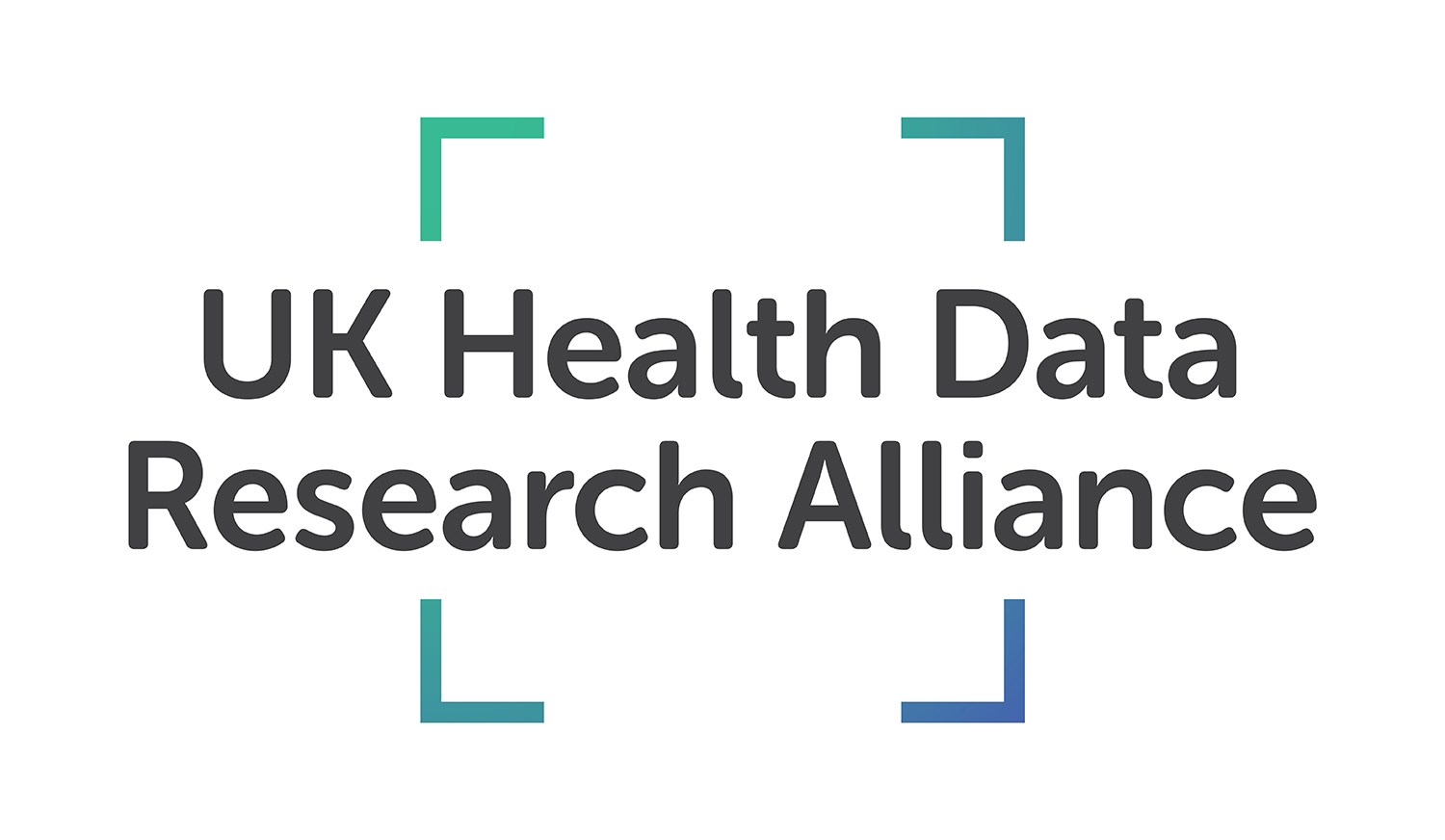
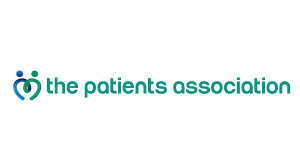
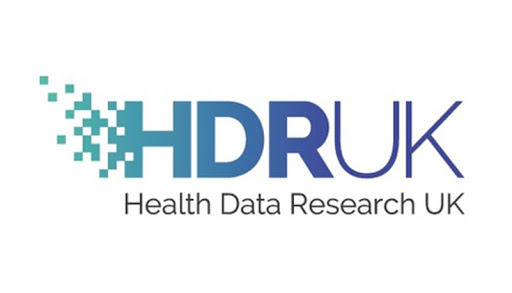

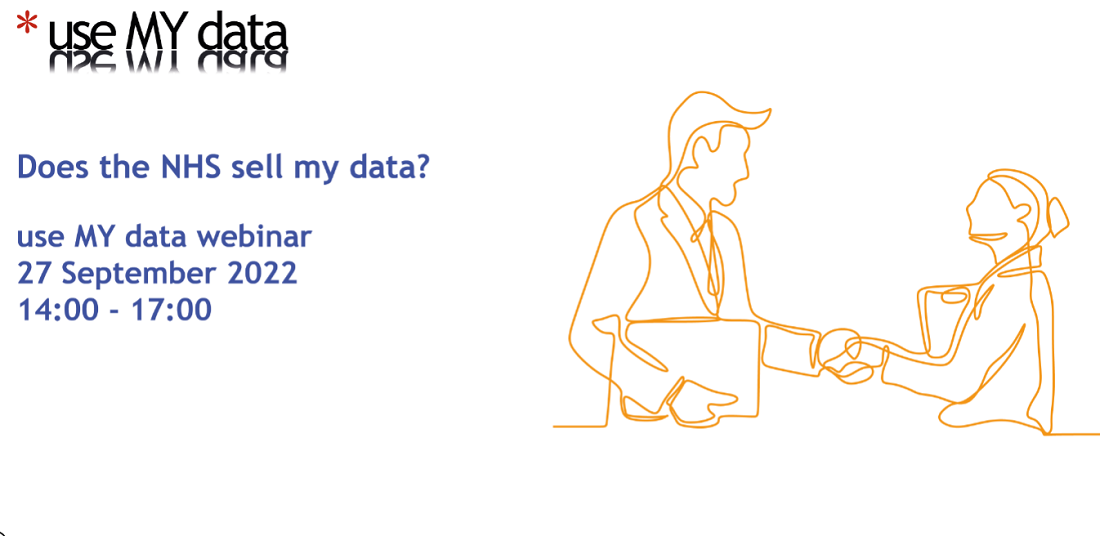
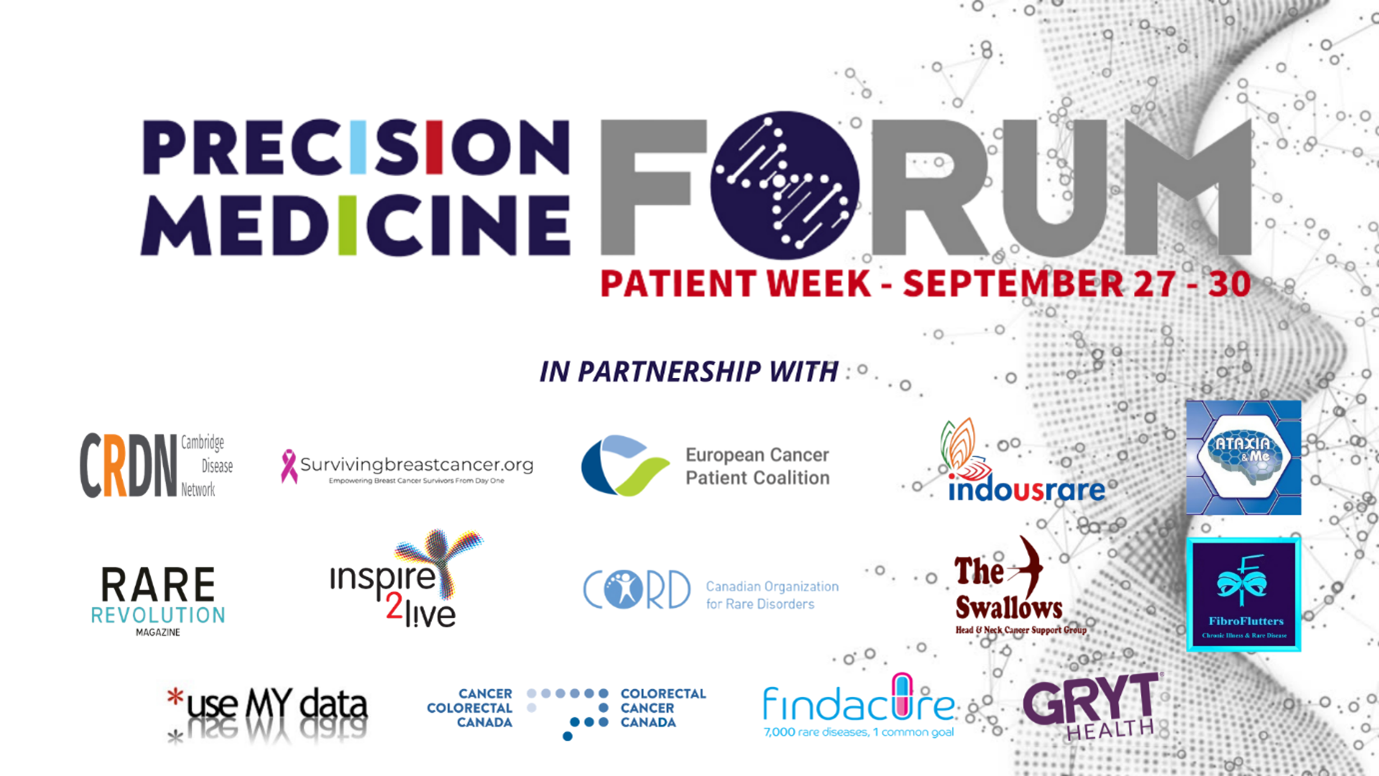

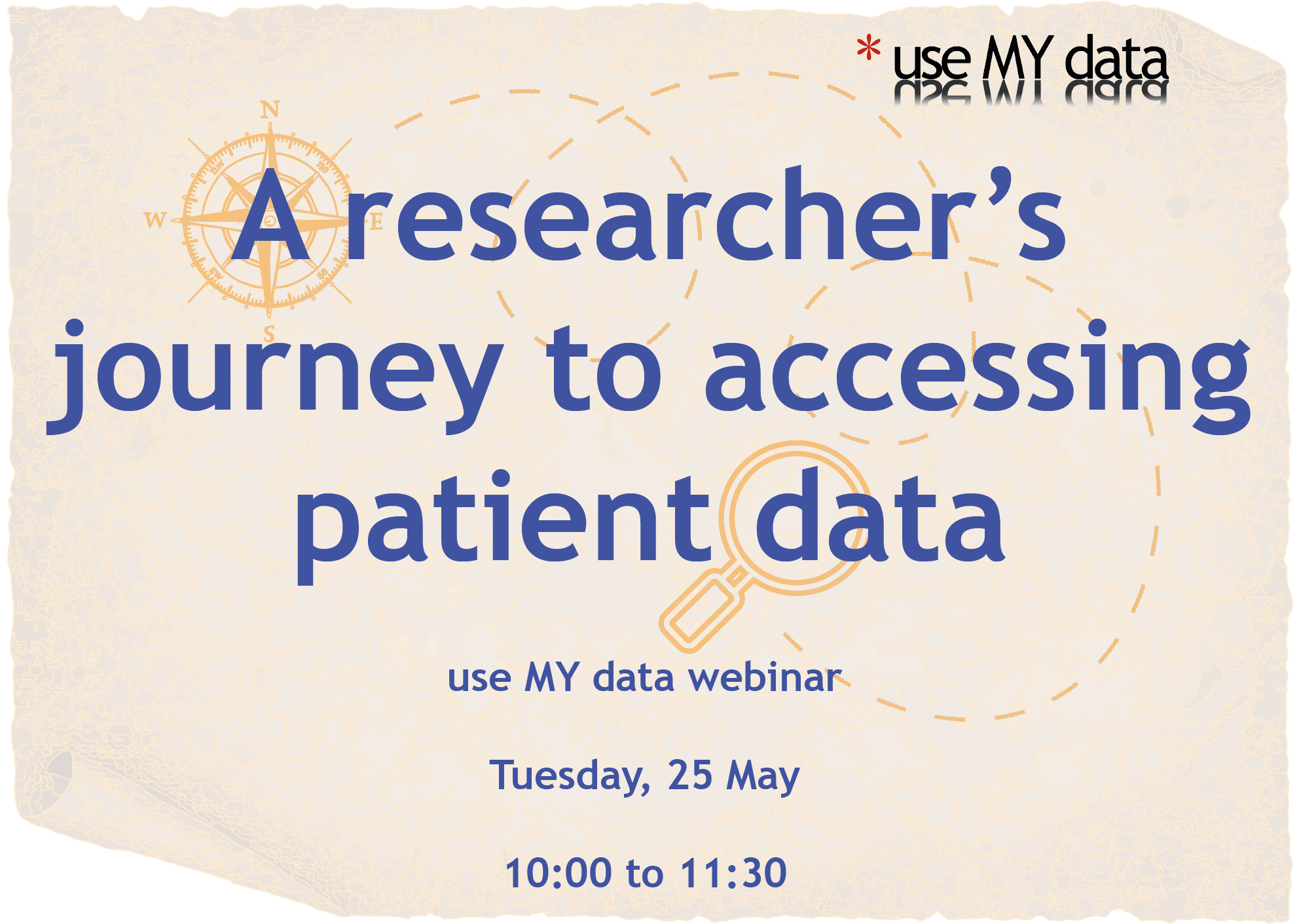


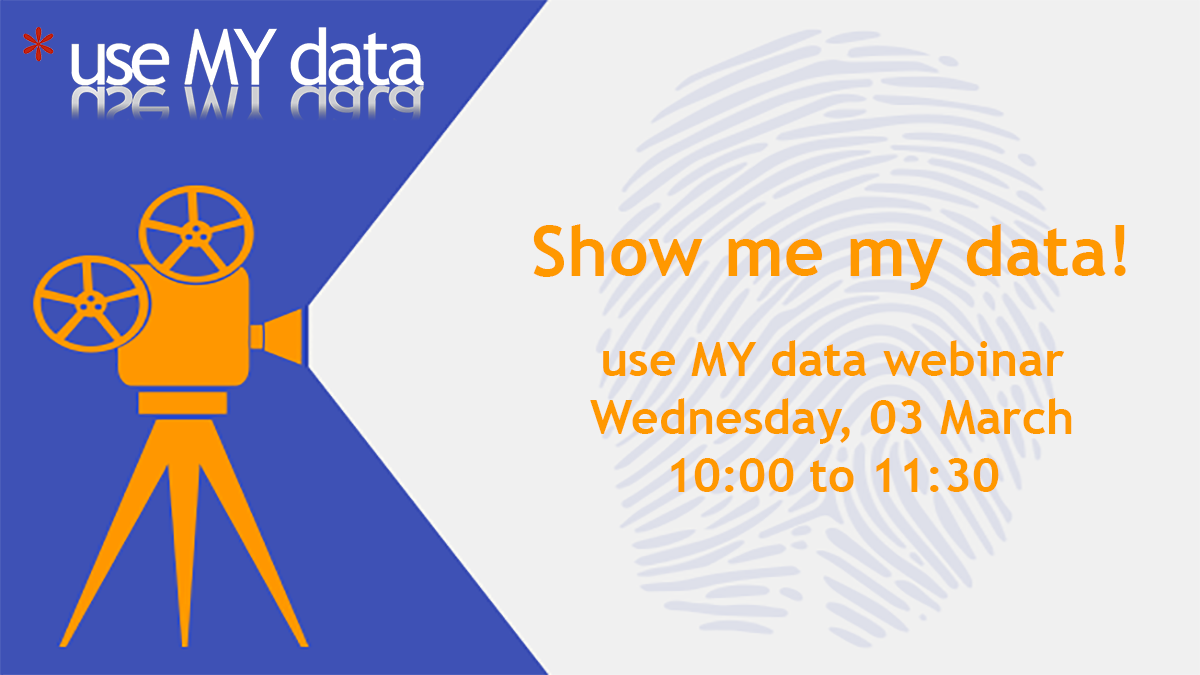
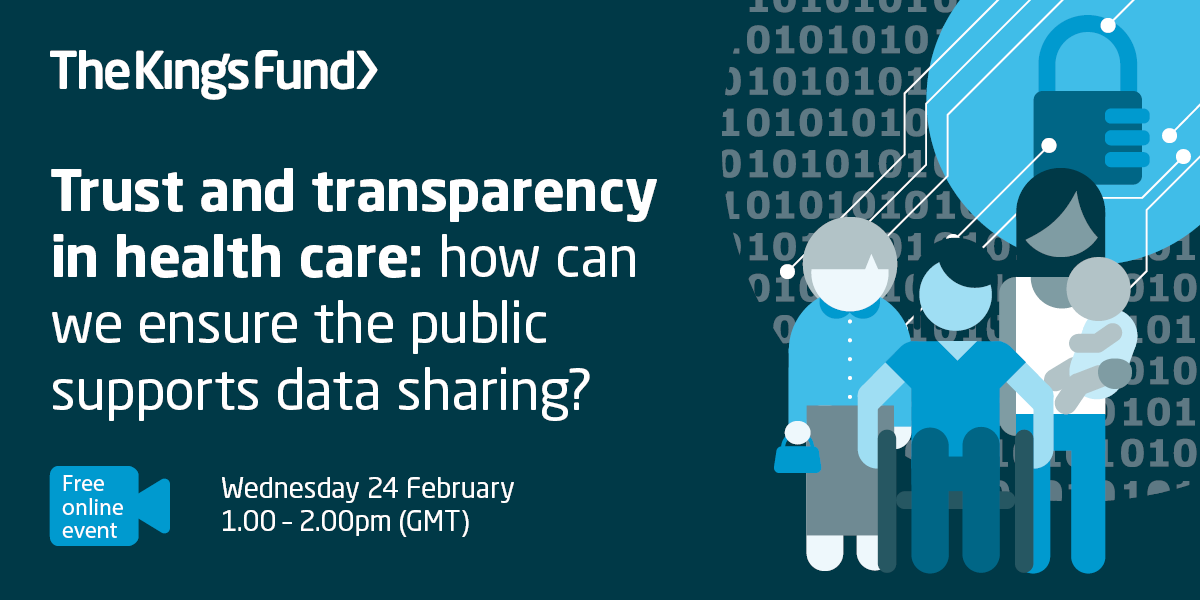
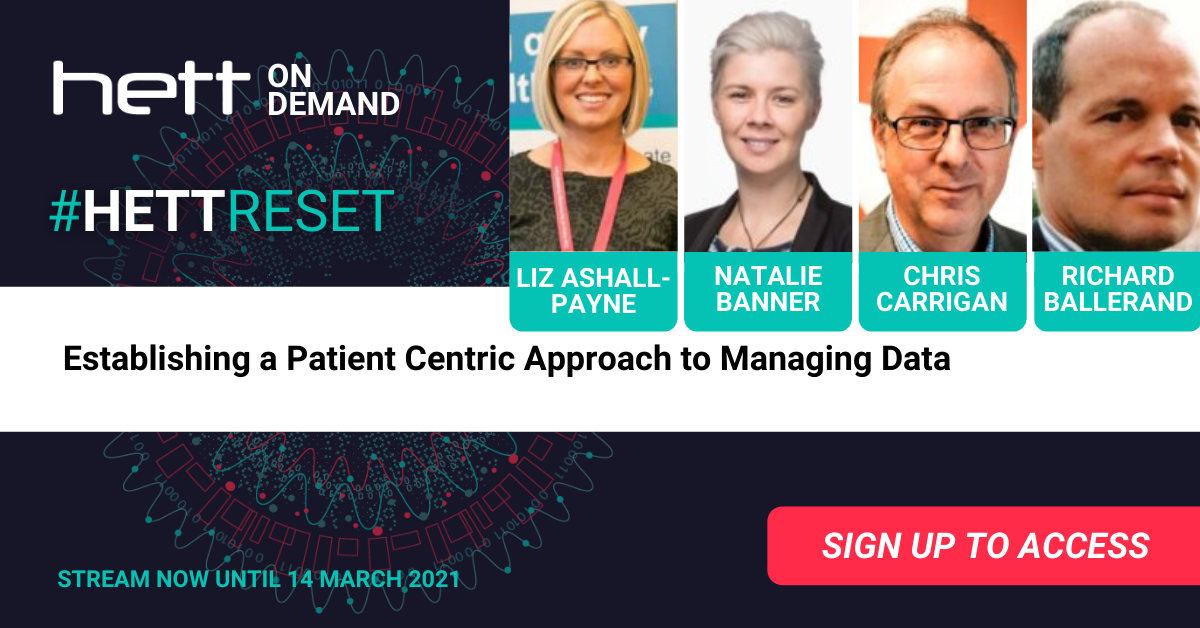


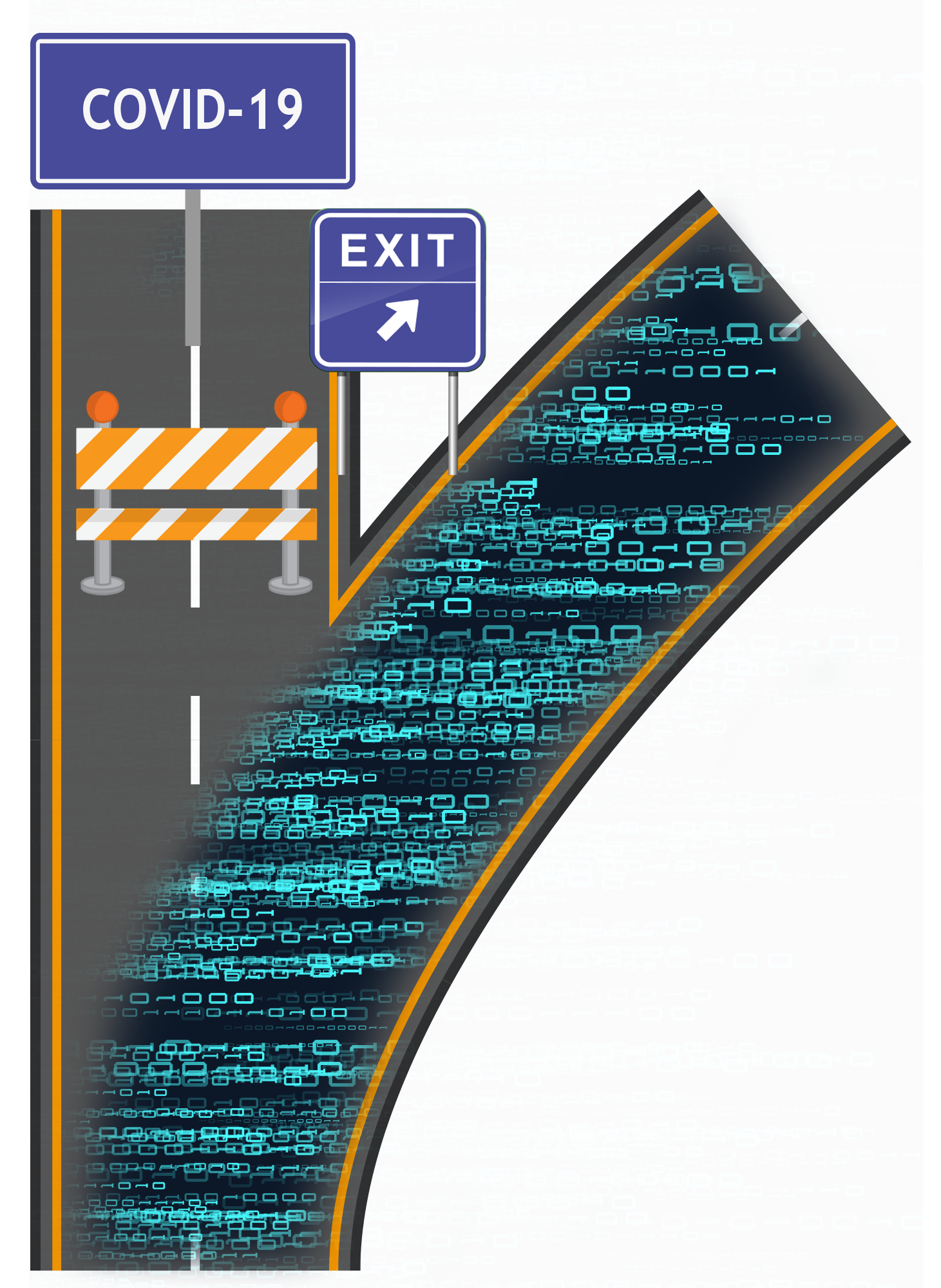






 Our joint focus for the event was "the patient voice in data", showing how use MY data and Cancer52 are working together to help ensure the voice of people with rare and less common cancers is heard.
Our joint focus for the event was "the patient voice in data", showing how use MY data and Cancer52 are working together to help ensure the voice of people with rare and less common cancers is heard. We encouraged the continued use of the use MY data "data citation", which has been adopted by Understanding Patient Data and which organisations are being encouraged to use.
We encouraged the continued use of the use MY data "data citation", which has been adopted by Understanding Patient Data and which organisations are being encouraged to use.